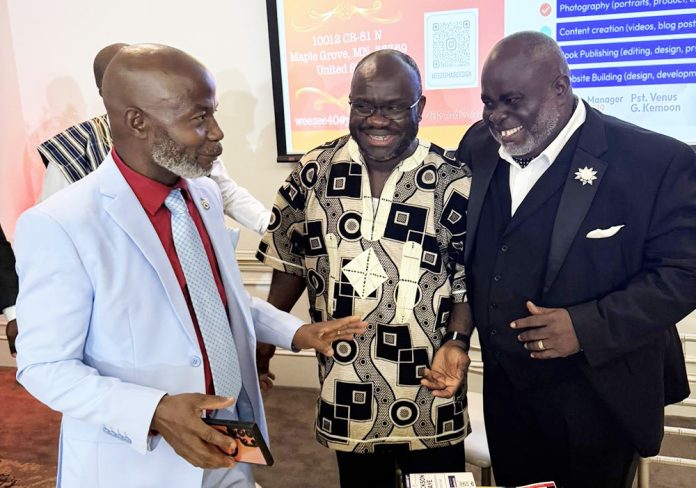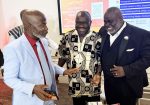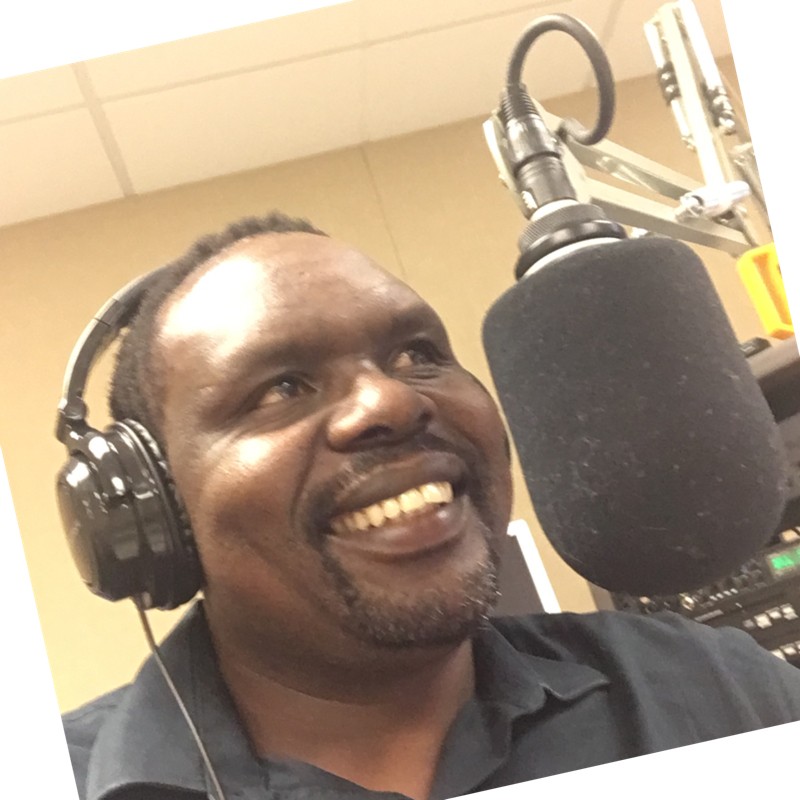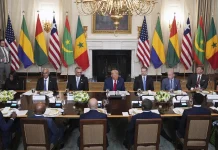

A clergyman from the Liberian community in Minnesota has urged his compatriots to be pragmatic, reconciliatory, and to tell their people’s full story, as they continue to rebuild following the civil wars that ravaged their country.
Rev. Alexander Bango Collins, the lead pastor at Redeemed Life Church and the board chair of Liberian Ministers Association, Minnesota, made the remarks in Brooklyn Park during the West African country’s 178th Independence Day celebrations, where he was the keynote speaker.
“As we reflect on 178 years of nationhood, it’s time we tell the full story of Liberia—not just the one written in official books, but the one carved into the soil by many hands,” Collins said.
Collins said that although it was true that freed African slaves from the United States played an important role in the founding of the Republic of Liberia, the written history often ignored stories of the people who were already living there. The reverend said the study of African history had been shaped by three prominent “strains,” namely the nationalist, the colonialist, and the pragmatic, each reflecting a different perspective on the country’s past, particularly in relation to colonization, independence.
It was the responsibility of Africans lead their narratives and shape their own history, Collins said. To do so, they must first listen to their souls and “the echo of our journey,” he said.
“Liberia’s story is not a solo; it’s a symphony,” Collins said. “And like all great music, it carries three intertwined melodies.”
He explained that the nationalist melody comprised of the “Guardians of the Soil”, indigenous peoples such as the Deh/Bassa Gola, the Kru, the Kpelle, the Vai, the Lorma, and others who owned nothing but land and yet possessed everything – the music of resistance, identity, and pride – which was essential to nationhood.
“They are nationalists, not in the sense of modern politics, but in their rootedness to the land and their ancestral duty to preserve it,” Collins said. “When the settlers came, it was these nationalists who fought to preserve their dignity, autonomy, and voice. Their strength reminds us that nationhood is not only declared—it is defended by those who have always belonged.”
In 1816, a group of white elites formed the American Colonization Society (ACS) to assist in the relocation of freed slaves back to Africa. The ACS quickly gained support and financial backing from the federal government, slave owners, and Protestant and Presbyterian churches, according to White House Historical Association. While members of ACS had different motivations for joining and conflicting opinions on slavery, they generally agreed that whites and Blacks could not coexist peacefully in the same country. In 1819, the U.S. Congress approved $100,000 for ACS to establish Liberia for the resettlement of freed slaves. The first group of settlers arrived in Liberia from the United States around 1822.
Collins dubbed these returning Africans as the “colonialist strain” of Liberia, “dreamers who came by sea” and brought the “melody of faith and freedom.” Blacks from America hoped “to build a New Jerusalem in Africa” and brought western education, structure, and ideas to make the ideals to realize the freedom they envisioned. Unfortunately, they ended up recreating the very oppression they escaped by exerting control on the guardians of the land.
“To many indigenous Liberians, these colonists felt more like strangers than liberators,” Collins said. “Yet we must be honest – they too loved Liberia. They founded schools, published newspapers, built cities, and held fast to constitutional ideals, even if unevenly applied. Their legacy is complex but undeniable.”
Unfortunately, that complexity in the founding of Liberia eventually led to years of civil unrest and wars. Between 1989 and 2003, it is estimated that 250,000 Liberians were killed in two separate civil wars. Many of the Liberians living in Minnesota came as refugees of the civil wars.
Collins said that as the country continues to recover and rebuild, the third strain of the Liberian symphony will be the one that brings the first two conflicting ones together to achieve lasting peace. He called this generation of Liberians “the pragmatic strain” of “realists and rebuilders.”
“This is the harmony of healing and hope,” he said. “Pragmatists are those who, after the clash of the settler and native, war and peace, identity and ideology, choose to work with what remains to build what could be.”
The reverend said that instead of dwelling on the conflict of the past, pragmatists seek reconciliation. He gave examples of the market women in Liberia who don’t discriminate, the Imams and Pastors who hold peace walks in Monrovia, and Liberian Americans who work long hours but still find time to show up at city council meetings to speak on issues of social and racial justice, he said.
“Pragmatists are not passive; they are purposeful, and they are our only way forward.”
About Edwin Okong'o - Mshale Contributing Editor
Edwin Okong'o is a Mshale Contributing Editor. Formerly he was the newspaper's editor.










